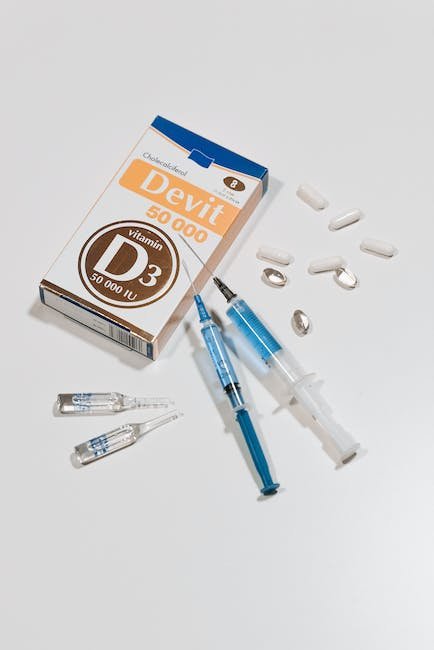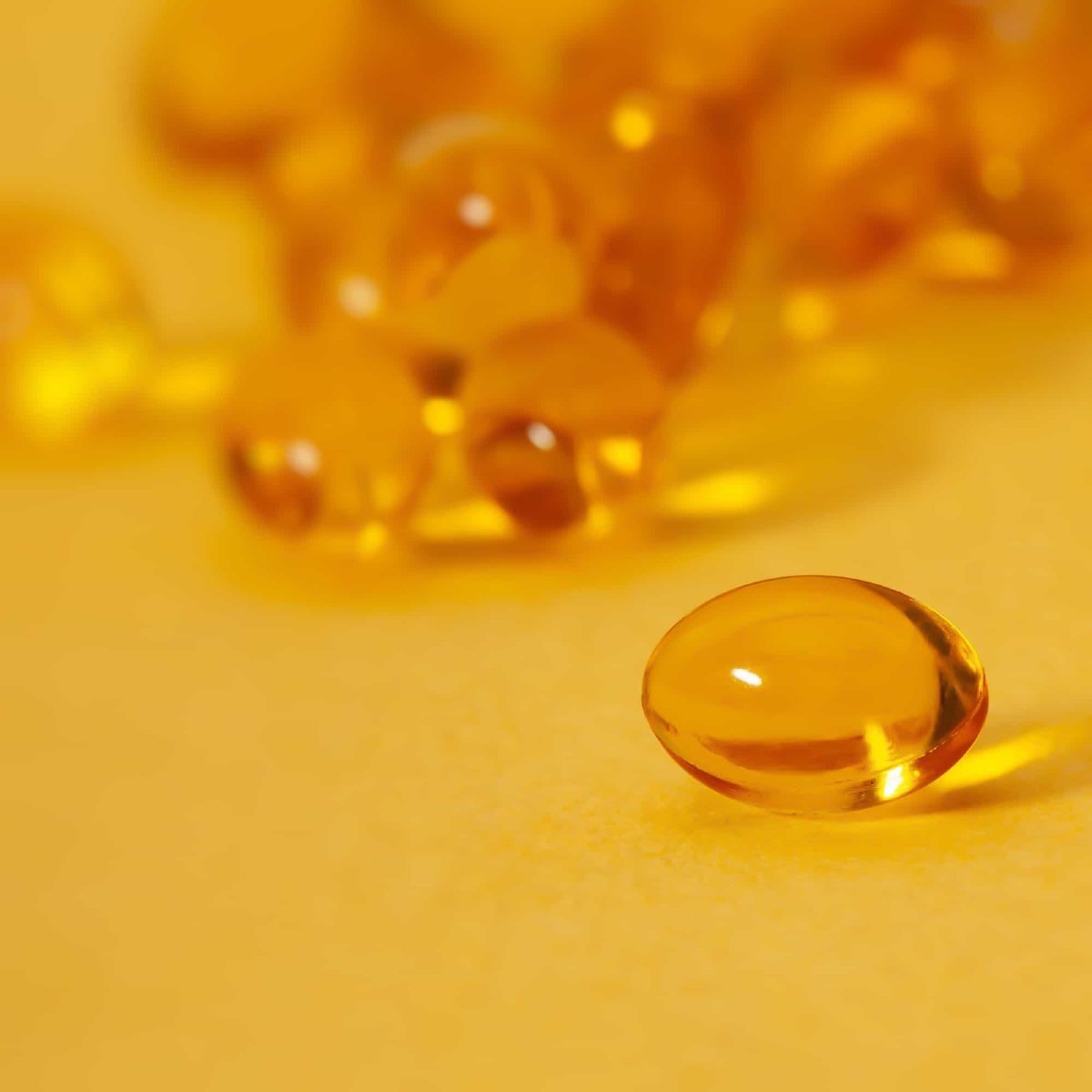As sunlight streams through lofty branches, casting a golden hue upon the earth, nature’s unseen gift is bestowed upon us – the seemingly magical vitamin D. While many recognize its crucial role in bone health, few may realize that this mighty nutrient extends its beneficial reach to the youngest among us; babies, those delicate beings unfurling into the world. For countless little ones, whose tiny bodies are yet to soak up the sun’s rays, the fortification of baby formula with vitamin D is a godsend. In this article, we dive into the boundless importance of this often overlooked addition, exploring the incredible impact it has on the growth and development of our tiniest and most cherished bundles of joy.
Table of Contents
- Vitamin D Deficiency: A Silent Health Crisis Affecting Infants
- Understanding the Role of Vitamin D in Baby Growth and Development
- The Benefits of Adding Vitamin D to Baby Formula
- Guidelines for Choosing Baby Formula Fortified with Vitamin D
- Promoting Healthy Vitamin D Levels for Optimal Infant Health
- Q&A
- Final Thoughts

Vitamin D Deficiency: A Silent Health Crisis Affecting Infants
For parents, the well-being of their infants is of utmost importance. However, there is a silent health crisis that often goes unnoticed – vitamin D deficiency. This essential nutrient plays a crucial role in the development of a child’s bones, immune system, and overall growth. Unfortunately, many infants are not getting enough vitamin D, putting them at risk for various health complications.
Why is this crisis happening? There are several factors at play here. Firstly, limited sun exposure can contribute to vitamin D deficiency, as sunlight is a primary source of this vital nutrient. In today’s modern lifestyle, infants spend less time outdoors and often lack sufficient sunlight exposure. Moreover, breast milk, while a fantastic source of nourishment, does not contain adequate levels of vitamin D. As a result, exclusively breastfed infants may not be getting enough of this vital nutrient.
The consequences of vitamin D deficiency can be significant. Infants who lack sufficient vitamin D are prone to weakened bones, growth stunting, and an increased risk of respiratory infections. Additionally, studies have shown a correlation between vitamin D deficiency and an elevated risk of developing autoimmune diseases later in life. To address this issue, healthcare professionals often recommend supplementation to ensure infants receive the necessary amount of vitamin D for proper growth and development.
Parents need to be aware of this silent health crisis and take appropriate measures to safeguard their infants’ well-being. Ensuring adequate sun exposure, considering supplementation, and consulting healthcare professionals are crucial steps towards preventing vitamin D deficiency. By being proactive and vigilant, we can protect our little ones from the complications associated with this silent health crisis.

Understanding the Role of Vitamin D in Baby Growth and Development
When it comes to the growth and development of babies, vitamin D plays a crucial role that should not be underestimated. This essential nutrient is known for its ability to assist in the absorption of calcium and phosphorus, which are essential for building strong bones and teeth. However, its benefits go beyond just skeletal development.
Vitamin D also plays a vital role in immune function, helping to protect babies against various infections and diseases. Additionally, research suggests that it may contribute to optimal brain development, promoting cognitive function and reducing the risk of developmental delays.
Unfortunately, many infants and young children do not get enough vitamin D, especially those who are breastfed, have limited sun exposure, or reside in areas with less sunlight. To ensure proper vitamin D levels, it is important to approach this issue with care. Whether through safe sun exposure, fortified foods, or pediatrician-recommended supplements, providing sufficient vitamin D to babies can significantly impact their overall growth and development.

The Benefits of Adding Vitamin D to Baby Formula
When it comes to a growing baby’s diet, ensuring they receive the essential nutrients is of utmost importance. One valuable addition that can greatly benefit infants is the inclusion of vitamin D in their formula. This crucial nutrient plays a significant role in promoting healthy bone development and overall growth.
include:
- Stronger Bones: Vitamin D aids in the absorption of calcium and phosphorus, two vital minerals for bone development. By fortifying baby formula with vitamin D, parents can help their little ones achieve stronger bones and teeth, reducing the risk of conditions like rickets or weak skeletal structure.
- Enhanced Immune System: Vitamin D also plays a key role in supporting a robust immune system. It helps regulate immune cell functions, reduces inflammation, and supports healthy immune responses, which can result in reduced incidence of respiratory infections, allergies, and autoimmune diseases in infants.
- Improved Cognitive Development: Studies have indicated that vitamin D plays a crucial role in brain development during early childhood. Adequate levels of this vitamin are associated with improved cognitive function, attention span, and reduced risk of neurodevelopmental disorders. Adding vitamin D to baby formula may thus support optimal brain development during this critical growth stage.
With these clear benefits, it becomes evident why including vitamin D in baby formula is worth considering. Nevertheless, it is essential to consult with a pediatrician before making any changes to a baby’s diet to ensure the right dosage is given, as excessive amounts of vitamin D can have adverse effects.
Guidelines for Choosing Baby Formula Fortified with Vitamin D
Comparison of Ingredients:
When selecting a baby formula that is fortified with Vitamin D, it is essential to compare the ingredients list. Look for formulas that contain essential nutrients such as DHA and ARA, which are beneficial for brain and eye development. Additionally, check for a mix of carbohydrates, proteins, and fats that mimic breast milk to ensure optimal nutrition for your little one.
Consider Your Baby’s Needs:
Every baby is unique, and their dietary requirements may vary. It is crucial to consider any specific needs or sensitivities your baby may have. If your little one shows signs of lactose intolerance or has a milk allergy, selecting a formula that is lactose-free or made from a different protein source like soy could be the right choice. Consult with your pediatrician to understand your baby’s specific needs before making a decision.
Certifications and Safety:
Ensuring the safety and quality of the formula you choose is of utmost importance. Look for reputable brands that adhere to strict manufacturing standards and have certifications such as ISO 9001 or FDA approval. Additionally, consider formulas that have undergone clinical trials to validate their effectiveness and safety. Reading reviews from other parents can also provide valuable insights into the product’s quality and potential issues.
Price and Availability:
While cost shouldn’t be the sole determining factor, it is worth considering when choosing a baby formula fortified with Vitamin D. Compare prices and assess the long-term affordability. Additionally, check the availability of the selected formula in your area. You’ll want to ensure it is easily accessible to avoid any inconvenience or last-minute scrambling.
Consult with a Healthcare Professional:
Lastly, always consult with your healthcare professional, such as a pediatrician or a registered dietitian, when deciding on the best baby formula for your child. They can provide personalized recommendations based on your baby’s specific needs and offer valuable guidance to ensure your little one receives optimal nutrition.
Promoting Healthy Vitamin D Levels for Optimal Infant Health
Vitamin D is an essential nutrient for the healthy development of infants. It plays a crucial role in bone development, immune function, and overall growth. By promoting healthy vitamin D levels, parents can ensure their babies have the best start in life. Here are some tips to help you optimize your infant’s vitamin D intake:
- Expose your baby to natural sunlight: Taking your little one outdoors for a short period, preferably in the morning or late afternoon, allows their skin to produce vitamin D when exposed to UVB rays. However, always remember to protect their delicate skin with baby-safe sunscreen and limit sun exposure to avoid overheating or sunburn.
- Consider fortified foods and supplements: As breast milk and formula alone may not provide enough vitamin D, it is recommended to consult with a pediatrician about the appropriate vitamin D supplement for your baby. Additionally, some infant cereals and formula brands are fortified with vitamin D, which can contribute to their daily intake.
- Introduce vitamin D-rich foods: Once your baby starts consuming solid foods, incorporate vitamin D-rich options into their diet. This includes fatty fish like salmon and mackerel, egg yolks, fortified dairy products, and fortified orange juice. Consult with a healthcare professional to ensure suitable quantities and safe food introductions.
Remember, maintaining healthy vitamin D levels is crucial for your infant’s well-being. By implementing these strategies and seeking guidance from healthcare professionals, you can promote optimal growth and development, setting the stage for a healthy future.
Q&A
1. Why is vitamin D important for babies?
Research has shown that vitamin D is vital for the development of strong bones and teeth, as well as for overall growth and immunity in infants. It helps the body absorb calcium, which is essential for healthy bone formation.
2. Can’t babies get enough vitamin D from sunlight alone?
While it’s true that sunlight is a natural source of vitamin D, pediatricians recommend against direct sun exposure for babies under six months to protect their sensitive skin. Additionally, factors such as latitude, time of year, and cloud cover can affect the production of vitamin D in the skin.
3. How can I ensure my baby gets enough vitamin D?
Breast milk is an excellent source of nutrition, but it doesn’t naturally contain enough vitamin D to meet infant requirements. Pediatricians often recommend supplementing breastfed babies with vitamin D drops. For formula-fed babies, fortified infant formulas provide the necessary amount of vitamin D.
4. Is it necessary to give vitamin D supplements to formula-fed babies?
The amount of vitamin D in most baby formulas is regulated and meets the recommended daily intake to support healthy growth in infants. However, it’s always best to consult with your pediatrician, who may recommend additional supplementation based on specific circumstances or medical conditions.
5. Can an excess of vitamin D be harmful to babies?
While it is important for babies to get enough vitamin D, excessive amounts can lead to hypercalcemia or an overabundance of calcium in the blood. This can cause symptoms such as nausea, vomiting, poor appetite, and even kidney problems. It’s crucial to follow the recommended dosage and consult with your pediatrician if you have any concerns.
6. What are the signs of vitamin D deficiency in babies?
Signs of vitamin D deficiency in babies could include slow growth, delayed development, muscle weakness, and increased susceptibility to infections. However, since these symptoms can also be related to other factors, it’s important to consult with a healthcare professional for an accurate diagnosis.
7. Apart from bone health, does vitamin D have other benefits for babies?
Yes, vitamin D plays a role in supporting the immune system, reducing the risk of respiratory infections, and potentially lowering the chances of developing certain chronic diseases as the child grows older. However, further research is still needed to fully understand the extent of these potential benefits.
8. Are vegan or vegetarian baby formulas fortified with vitamin D?
Most commercially available vegan or vegetarian baby formulas are fortified with vitamin D to compensate for its absence in plant-based sources. However, it’s crucial to carefully read product labels or consult with a pediatrician to ensure the formula you are using meets all the necessary nutritional requirements for your baby’s wellbeing.
Final Thoughts
In conclusion, the sun shines brightly on the significant role of vitamin D in baby formula. Like a beam of light breaking through the clouds, this essential nutrient illuminates the path to healthy growth and development for our little ones. It readily dances with their tiny bodies, inspiring stronger bones, fortified immune systems, and flourishing smiles.
As we ponder the importance of vitamin D in baby formula, let us marvel at the harmony it creates between mother nature and scientific innovation. Like a symphony conduction, the blend of organic sources and meticulous research orchestrates a virtuoso of benefits for our precious bundles of joy.
Remember, dear parents, that the sun cannot always shine on us, especially during those long winter days or when the thunderstorms rumble overhead. It is during these moments that baby formula fortified with vitamin D, the sun’s loyal apprentice, steps onto the stage. It fills the void left by nature, casting a radiant spotlight on the wholesome nutrition our little ones deserve.
So, whether you choose to nourish your baby through breastfeeding or baby formula, incorporating this solar-powered superhero is crucial for their well-being. Bask in the knowledge that as you hold your baby close, this delightful elixir of sunshine and science supports their transformation into healthy, vibrant beings.
Let us not forget the infinite wonders that lie within the smallest of details. Embracing the importance of vitamin D in baby formula is not merely a gesture towards healthy bones; it is an ode to the brilliance of life itself. So, dear parents, let us embrace this gift from the heavens and watch our little ones radiate with joy, resilience, and the warm glow of a sunny day.
As an affiliate, my content may feature links to products I personally use and recommend. By taking action, like subscribing or making a purchase, you’ll be supporting my work and fueling my taco cravings at the same time. Win-win, right?
Want to read more? Check out our Affiliate Disclosure page.